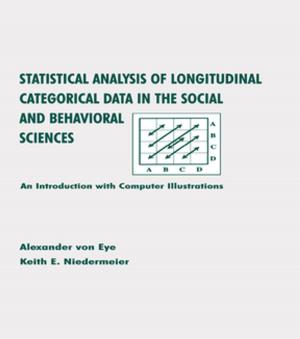| Author: | Hubert M. Blalock | ISBN: | 9781351329064 |
| Publisher: | Taylor and Francis | Publication: | September 8, 2017 |
| Imprint: | Routledge | Language: | English |
| Author: | Hubert M. Blalock |
| ISBN: | 9781351329064 |
| Publisher: | Taylor and Francis |
| Publication: | September 8, 2017 |
| Imprint: | Routledge |
| Language: | English |
Among the frustrations constantly confronting the social scientist are those associated with the general process of measurement. The importance of good measurement has long been recognized in principle, but it has often been neglected in practice in many of the social sciences. Now that the methodological tools of multivariate analysis, simultaneous-equation estimation, and causal modeling are diffused more widely into the social sciences, and now that the very serious implications of random and non-random measurement errors are being systematically investigated, it is all the more important that social scientists give top priority to the quality of their data and the clarity of their theoretical conceptualizations. The book is organized so that, one proceeds from problems of data collection to those of data analysis. It is not intended to be a complete work covering all types of measurement problems that have arisen in the social sciences. Instead, it represents a series of studies that are deemed to be crucial for the advancement of social science research but which have not received sufficient attention in most of the social sciences. The basic purpose is to stimulate further methodological research on measurement and to study the ways in which knowledge that has been accumulated in some fields may be generalized. Part I is concerned with applying scaling approaches developed in psychometrics to problems that arise in other social sciences. The focus is on finding better ways to ask questions of respondents so as to raise the level of measurement above that of simple ordinal scales. Part II focuses on multiple-indicator theory and strategies as applied to relatively complex models and to change data. In this section the emphasis shifts to how one analyzes fallible data through the construction of explicit measurement-error models. Part III deals with the statistical analysis of ordinal data, including the interpretation and empirical behaviors of various ordinal measures of association.
Among the frustrations constantly confronting the social scientist are those associated with the general process of measurement. The importance of good measurement has long been recognized in principle, but it has often been neglected in practice in many of the social sciences. Now that the methodological tools of multivariate analysis, simultaneous-equation estimation, and causal modeling are diffused more widely into the social sciences, and now that the very serious implications of random and non-random measurement errors are being systematically investigated, it is all the more important that social scientists give top priority to the quality of their data and the clarity of their theoretical conceptualizations. The book is organized so that, one proceeds from problems of data collection to those of data analysis. It is not intended to be a complete work covering all types of measurement problems that have arisen in the social sciences. Instead, it represents a series of studies that are deemed to be crucial for the advancement of social science research but which have not received sufficient attention in most of the social sciences. The basic purpose is to stimulate further methodological research on measurement and to study the ways in which knowledge that has been accumulated in some fields may be generalized. Part I is concerned with applying scaling approaches developed in psychometrics to problems that arise in other social sciences. The focus is on finding better ways to ask questions of respondents so as to raise the level of measurement above that of simple ordinal scales. Part II focuses on multiple-indicator theory and strategies as applied to relatively complex models and to change data. In this section the emphasis shifts to how one analyzes fallible data through the construction of explicit measurement-error models. Part III deals with the statistical analysis of ordinal data, including the interpretation and empirical behaviors of various ordinal measures of association.















